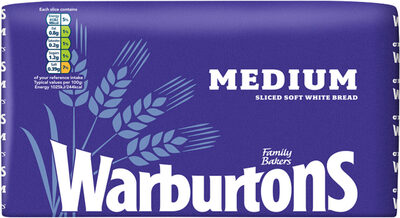
Barcode: 5010044000039
Medium Sliced Soft White Bread
DOUBTFUL
📝 Reason: The Halal status remains indeterminate for some components. Final determination requires knowledge of exact formulations and manufacturing processes.
🏷️ Category: Plant Based Foods And Beverages, Plant Based Foods, Cereals And Potatoes, Breads, Sliced Breads
📄 Certificates: Low Or No Sugar, Low Sugar, Vegetarian, Halal, Kosher, Source Of Proteins, Vegan, Halal Food Authority, High Proteins, Kashrut Division Of The London Beth Din, Vegetarian Society Approved, Vegetarian Society Approved Vegan
Ingredients:
Details
Understanding the Halal Status of Medium Sliced Soft White Bread
Many consumers are concerned about the Halal status of their food products, especially in a diverse dietary landscape. Today, we delve into the Halal status of Medium Sliced Soft White Bread, exploring each ingredient and understanding what makes it Halal or not.
Halal Status Overview
The Halal status of Medium Sliced Soft White Bread is currently deemed DOUBTFUL. This designation arises due to uncertainties regarding some components of the product. It is essential to understand that the final determination of Halal status relies heavily on exact formulations and manufacturing practices. The presence of certain additives and preservatives could make a difference, and transparency from manufacturers is crucial.
Ingredient Breakdown
Let’s dissect the ingredients listed for this bread:
- Wheat flour (with calcium, iron, niacin (B3) and thiamin (B1)) – All components are permissible in Islam.
- Water – Clearly permissible in all Islamic dietary laws.
- Yeast – Also permissible and commonly used in bread-making.
- Salt – An essential element that is permissible.
- Vegetable oil (rapeseed, sustainable palm) – Both oils are generally considered Halal as long as they are sustainably sourced.
- Soy flour – Typically permissible in Islam.
- Preservative (calcium propionate, E282) – This is a common preservative that raises concerns due to its E-number status.
- Emulsifiers (E481, E472e) – These specific emulsifiers can be problematic as E481 can sometimes be derived from animal fats, raising questions about their Halal compliance.
- Flour treatment agent (ascorbic acid or Vitamin C) – This is permissible in Islam.
Understanding E-numbers
Many consumers may be unfamiliar with what E-numbers mean; these are codes for substances used as food additives in the European Union. Here’s a closer look at the E-numbers used in this bread:
- E282 (Calcium Propionate) – A preservative that is commonly used. It is generally considered permissible but can be questionable in some formulations.
- E481 (Sodium Stearoyl Lactylate) – An emulsifier that is derived from stearic acid, which can be animal or plant-based. Its Halal status may vary based on its source.
- E472e (Diacetyltartaric Acid Esters of Monoglycerides) – Another emulsifier, similar to E481, which can also have animal origins, hence the need for clarity on its source.
Brand and Certification Context
This product falls under multiple categories, including Plant-Based Foods and Beverages, Cereals and Potatoes, and specifically Sliced Breads. The certifications associated with this bread include Low Sugar, Vegetarian, Vegan, and Halal, among others. It is crucial to note that while certifications indicate adherence to certain standards, they do not guarantee that every ingredient is Halal without further investigation.
Conclusion: Should You Consume Medium Sliced Soft White Bread?
While there are elements that raise doubts regarding the Halal compliance of Medium Sliced Soft White Bread, many ingredients are generally permissible. A thorough investigation into the sources of E481 and E472e should be conducted for anyone strictly adhering to Halal dietary requirements. If in doubt, it may be best to contact the manufacturer directly or consult with reliable Halal certification authorities.
In conclusion, being informed about food products is essential for maintaining a Halal diet. Stay curious, ask questions, and always check the labels as the food landscape continues to evolve!
